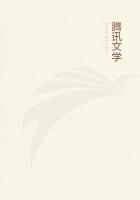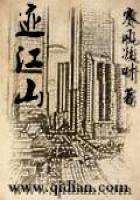During my college days at Yale Wendell Phillips, William Lloyd Garrison, and Henry Ward Beecher were frequent lecturers, and generally on the slavery question. I have heard most of the great orators of the world, but none of them produced such an immediate and lasting effect upon their audience as Wendell Phillips. He was the finest type of a cultured New Englander. He was the recipient of the best education possible in his time and with independent means which enabled him to pursue his studies and career. Besides, he was one of the handsomest men I ever saw upon the platform, and in his inspired moments met one's imaginative conception of a Greek god.
Phillips rarely made a gesture or spoke above the conversational, but his musical voice reached the remotest comers of the hall.
The eager audience, fearful of losing a word, would bend forward with open mouths as well as attentive ears. It was always a hostile audience at the beginning of Mr. Phillips's address, but before the end he swayed them to applause, tears, or laughter, as a skilled performer upon a perfect instrument. His subject was nearly always slavery, his views very extreme and for immediate abolition, but at that time he had a very small following.
Nevertheless, his speeches, especially because of the riots and controversies they caused, set people thinking, and largely increased the hostility to slavery, especially to its extension.
I met Mr. Phillips one evening, after a lecture, at the house of Professor Goodrich. He was most courtly and considerate to students and invited questions. While I was charmed, even captivated, by his eloquence, I had at that time very little sympathy with his views. I said to him: "Mr. Phillips, your attack to-night upon Caleb Cushing, one of the most eminent and able public men in the country, was very vitriolic and most destructive of character and reputation. It seems so foreign to all I know of you that, if you will pardon me, I would like to know why you did it." He answered: "I have found that people, as a rule, are not interested in principles or their discussions. They are so absorbed in their personal affairs that they do very little thinking upon matters outside their business or vocation. They embody a principle in some public man in whom they have faith, and so that man stands for a great body of truth or falsehood, and may be exceedingly dangerous because a large following connects the measure with the man, and, therefore, if I can destroy the man who represents a vicious principle I have destroyed the principle." It did not strike me favorably at the time, nor does it now. Nevertheless, in politics and in the battles of politics it represents a dynamic truth.
The perfect preparation of a speech was, in Wendell Phillip's view, that one in which the mental operations were assisted in no way by outside aid. Only two or three times in his life did he prepare with pen and paper an address, and he felt that these speeches were the poorest of his efforts. He was constantly studying the art of oratory. In his daily walks or in his library metaphors and similes were suggested, which he tucked away in his memory, and he even studied action as he watched the muscular movements of men whom he saw in public places. He believed that a perfect speech could be prepared only after intense mental concentration. Of course the mind must first be fortified by such reading as provided facts. Having thus saturated his mind with information, he would frequently lie extended for hours upon his sofa, with eyes closed, ****** mental arrangements for the address.
In fact, he used to write his speeches mentally, as Victor Hugo is said to have written some of his poems. A speech thus prepared, Phillips thought, was always at the command of the speaker. It might vary upon every delivery, and could be altered to meet emergencies with the audience, but would always be practically the same.
This method of preparation explains what has been a mystery to many persons. The several reports of Phillips's lecture on "The Lost Arts" differ in phraseology and even in arrangement.
Mr. Phillips did not read his speeches in print, and, therefore, never revised one. He was firmly of the belief that the printed thought and the spoken thought should be expressed in different form, and that the master of one form could not be the master of the other.
I met many young men like myself in the canvass of 1856, and also made many acquaintances of great value in after-life. It was difficult for the older stump speakers to change the addresses they had been delivering for years, so that the young orators, with their fresh enthusiasm, their intense earnestness and undoubting faith, were more popular with the audiences, who were keenly alive to the issues raised then by the new Republican party.
The Republican party was composed of Whigs and anti-slavery Democrats. In this first campaign the old-timers among the Whigs and the Democrats could not get over their long antagonism and distrusted each other. The young men, whether their ancestry was Democratic or Whig, were the amalgam which rapidly fused all elements, so that the party presented a united front in the campaign four years afterwards when Mr. Lincoln was elected.
In the course of that campaign I had as fellow speakers many times on the platform statesmen of national reputation. These gentlemen, with few exceptions, made heavy, ponderous, and platitudinous speeches. If they ever had possessed humor they were afraid of it.
The crowd, however, would invariably desert the statesman for the speaker who could give them amusement with instruction. The elder statesmen said by way of advice: "While the people want to be amused, they have no faith in a man or woman with wit or anecdote. When it comes to the election of men to conduct public affairs, they invariably prefer serious men." There is no doubt that a reputation for wit has seriously impaired the prospects of many of the ablest men in the country.

